Blog
Who Made You to Differ?
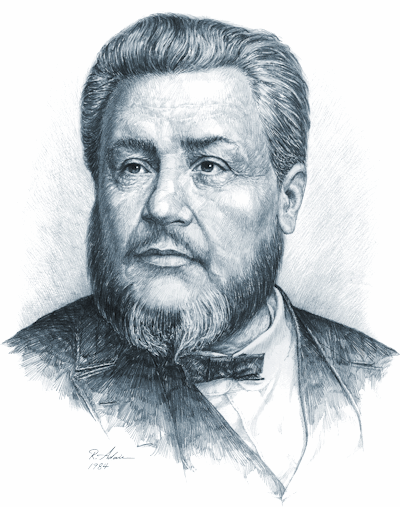 by C. H. Spurgeon
by C. H. Spurgeon
It is grace, free, sovereign grace, which has made you to differ!
Should any here, supposing themselves to be the children of God, imagine that there is some reason "in them" why they should have been chosen, let them know, that as yet they are in the dark, concerning the first principles of grace, and have not yet learned the gospel.
If ever they had known the gospel, they would, on the other hand, confess that they were less than the least- the offscouring of all things- unworthy, ill-deserving, undeserving, and hell-deserving, and ascribe it all to distinguishing grace, which has made them to differ; and to discriminating love, which has chosen them out from the rest of the world. Great Christian, you would have been a great sinner if God had not made you to differ!
O! you who are valiant for truth, you would have been as valiant for the devil if grace had not laid hold of you! A seat in heaven shall one day be yours; but a chain in hell would have been yours if grace had not changed you! You can now sing his love; but a licentious song might have been on your lips, if grace had not washed you in the blood of Jesus! You are now sanctified, you are quickened, you are justified; but what would you have been today if it had not been for the interposition of the divine hand? There is not a crime you might not have committed; there is not a folly into which you might not have run.Even murder itself you might have committed if grace had not kept you.You shall be like the angels; but you would have been like the devil if you had not been changed by grace!
-----
Excerpt from the sermon The Fruitless Vine by C. H. Spurgeon
Christ and Sanctification
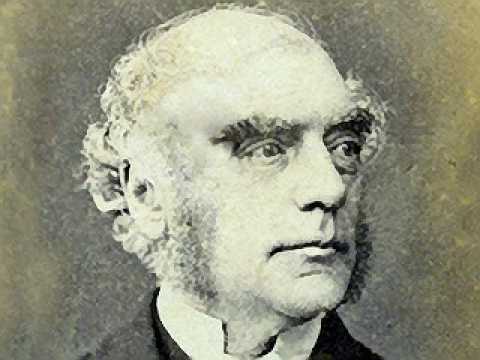 by Octavius Winslow
by Octavius Winslow
By simple, close, and searching views of the cross of Christ, the Spirit most effectually sanctifies the believer. This is the true and great method of gospel sanctification. Here lies the secret of all real holiness and, may I not add, of all real happiness? For if we separate happiness from holiness, we separate that which, in the Covenant of Grace, God has wisely and indissolubly united. The experience of the true believer must testify to this. We are only happy as we are holy – as the body of sin is daily crucified, as the power of the indwelling principle of sin is weakened, and as the outward deportment more beautifully and closely corresponds to the example of Jesus. Let us not then look for a happy walk apart from a holy one. Trials we may have; indeed if we are the Lord's covenant ones, we shall have them, for He Himself has said, "In the world ye shall have tribulation" (John 16:33). Disappointments we may meet with – broken cisterns, thorny roads, wintry skies; but if we are walking in fellowship with God, walking in the light, growing up into Christ in all things, (with) the Spirit of adoption dwelling in us and leading to a filial and unreserved surrender – oh! there is happiness unspeakable, even though in the very depth of outward trial! A holy walk is a happy walk. This is God's order ... and therefore must be wise and good.
The Spirit especially and effectually sanctifies by unfolding the cross of Jesus
The Marks of True Prayer
by Joel Beeke
1. True prayer brings heaven down into the soul, and lifts the soul up to heaven.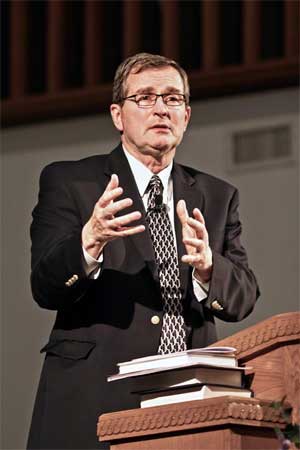
2. True prayer is the prime exercise of faith where all saving graces converge to climax in both the highest expression of gratitute (to God) and the deepest expression of humility (with regard to ourselves), as well as the broadest expression of love (for others).
3. True prayer is real life. It is the “soul’s breathing itself into the bosom of its heavenly Father” (Thomas Watson).
4. True prayer is the sinner’s response to God’s voice. The prayer of the broken-hearted is a gift to God in reply to God’s gift of prayerful brokenheartedness. True prayer is returning to God through the weaknesses and stains of human brokenness and unworthiness what God has decreed from all eternity, made room for in time, and brought to fruition in the moment of actual soul-wrestling.
5. True prayer is a holy art taught by a groaning, wrestling Spirit who often uses the impossibilities and apparent “artlessness” of the believer’s entangled and sin-stained life to pencil upon him the image of his worthy Master.
6. True prayer is spiritual air for spiritual lungs. Where prayerless praying overtakes prayerful praying, the true believer degenerates into listlessness.
7. True prayer is the fruit of God Triune – the Father as Giver and Decreer, the Son as Meritor and Perfector, the Spirit as Wrestler and Indweller.
8. True prayer has an unexplainable way of augmenting both the worthiness of Christ and the unworthiness of the sinner; hence, it is both the chief part of humility and of thankfulness (cf. Heid. Cat. Q. 116).
The Ground of Justification
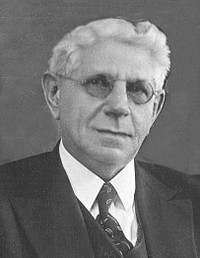 by Louis Berkhof
by Louis Berkhof
One of the most important points of the controversy between the Church of Rome and the Reformers, and between Reformed theology and the Arminians, concerned the ground of justification. With respect to this the Reformers taught:
1. Negatively, that this cannot be found in any virtue of man, nor in his good works. This position must also be maintained at present over against Rome and the Pelagianizing tendencies of various Churches. Rome teaches that the sinner is justified on the basis of the inherent righteousness that has been infused into his heart, and which, in turn, is the fruit of the co-operation of the human will with prevenient grace. This applies to what is called the first justification; in all following justification the good works of man come into consideration as the formal cause or ground of justification. It is impossible however, that the inherent righteousness of the regenerate man and his good works should be constitute the ground of his justification, for (a) this righteousness is and remains during this life a very imperfect righteousness; (b) it is itself already the fruit of the righteousness of Christ and of the grace of God; and (c) even the best works of believers are polluted with sin. Moreover, Scripture teaches us very clearly that man is justified freely by the grace of God, Rom. 3:24, and that he cannot possibly be justified by the works of the law, Rom. 3:28; Gal. 2:16; 3:11.
The Distinction Between Free Will and Free Agency
INABILITY: FALLEN HUMAN BEINGS ARE BOTH FREE AND ENSLAVED
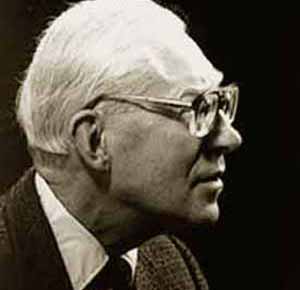 by J.I. Packer
by J.I. Packer
The heart is deceitful above all things and beyond cure. Who can understand it? - JEREMIAH 17:9
Clear thought about the fallen human condition requires a distinction between what for the past two centuries has been called free agency and what since the start of Christianity has been called free will. Augustine, Luther, Calvin, and others spoke of free will in two senses, the first trivial, the second important; but this was confusing, and it is better always to use free agency for their first sense.
Free agency is a mark of human beings as such. All humans are free agents in the sense that they make their own decisions as to what they will do, choosing as they please in the light of their sense of right and wrong and the inclinations they feel. Thus they are moral agents, answerable to God and each other for their voluntary choices. So was Adam, both before and after he sinned; so are we now, and so are the glorified saints who are confirmed in grace in such a sense that they no longer have it in them to sin. Inability to sin will be one of the delights and glories of heaven, but it will not terminate anyone’s humanness; glorified saints will still make choices in accordance with their nature, and those choices will not be any the less the product of human free agency just because they will always be good and right.
Our Posture Before the Word of God
by Tom Lyon
1. If I find something with which I cannot agree, I am wrong.
2. If I find something which I cannot understand, I am wrong to judge it on that account. A quote from Martyn Lloyd-Jones: “You have a very small brain and you have a very poor spirit within you; do not be surprised that you cannot understand.”
3. If I find something which would contradict the clear teaching of Scripture elsewhere, I cannot be right.
4. If I find something which would slander the revealed character of God, I am certainly wrong.
5. If I find something which brings up an apparent contradiction, I am wrong not to face it squarely.
6. If I find something which leads to a summary principle, I am wrong if I do not follow it to its conclusion.
7. If I find something which disturbs my settled convictions, I am wrong to dismiss it on that account.
8. If I find something which calls for decisive action and I remain inert, I am fatally wrong.
9. If I find something which I dare not follow in its practical drift, I am destructively wrong.
10. If I find something which others blush to admit or struggle to avoid, I am unwise to follow them at that point. A quote from Calvin: “The delicacy of those who affect an appearance of greater prudence than the Holy Spirit in removing or resolving difficulties, is quite intolerable.”
11. If I find something upon which popular religion frowns, I may presume I am on the right track. C.H. Spurgeon quote: “Be assured there is nothing new in theology except that which is false.”
12. If I find something which would tend to humble man and glorify God, I am most probably right.
----
The Great Giver
by A. W. Pink
"He that spared not His own Son, but delivered Him up for us all, how shall He not with Him also freely give us all things?" - Rom. 8:32
The above verse supplies us with an instance of Divine logic. It contains a conclusion drawn from a premise; the premise is that God delivered up Christ for all His people, therefore everything else that is needed by them is sure to be given. There are many examples in Holy Writ of such Divine logic. "If God so clothe the grass of the field, which today is and tomorrow is cast into the oven, shall he not much more clothe you?" (Mat_6:30). "If when we were enemies we were reconciled to God by the death of his Son, much more being reconciled, we shall be saved by his life" (Rom. 5:10). "If ye then being evil, know how to give good gifts unto your children, how much more shall your Father which is in heaven give good things to them that ask him?" (Mat_7:11). So here in our text the reasoning is irresistible and goes straight to the understanding and heart.
Our text tells of the gracious character of our loving God as interpreted by the gift of His Son. And this, not merely for the instruction of our minds, but for the comfort and assurance of our hearts. The gift of His own Son is God’s guarantee to His people of all needed blessings. The greater includes the less; His unspeakable spiritual gift is the pledge of all needed temporal mercies. Note in our text four things:
1. The Father’s Costly Sacrifice.
God's Electing Grace
"Those who are passed over by God will never complain that God is being unfair. Left to themsleves, they have no desire to be chosen." - Ian Duguid
Historically Reformed
A short summary of the historic meaning of what it is to be theologically Reformed
